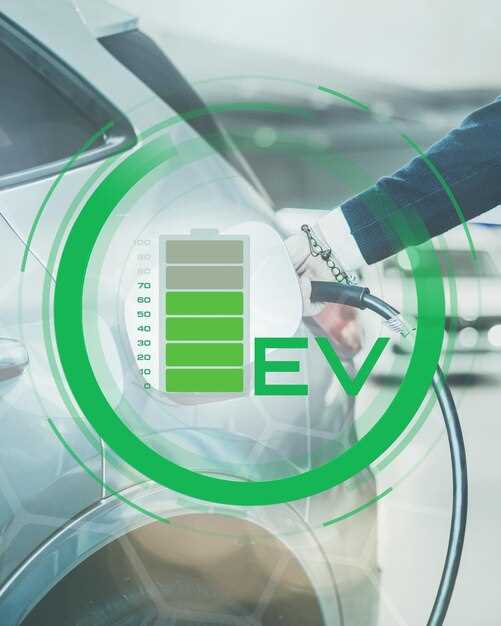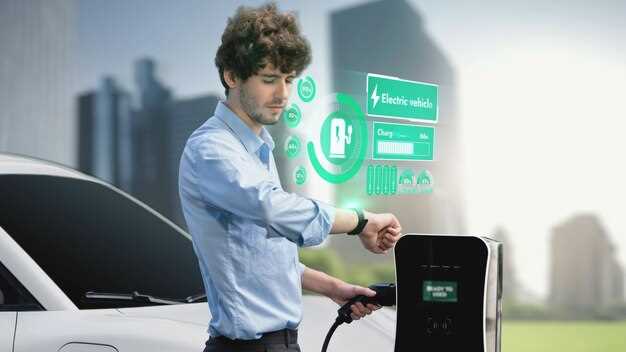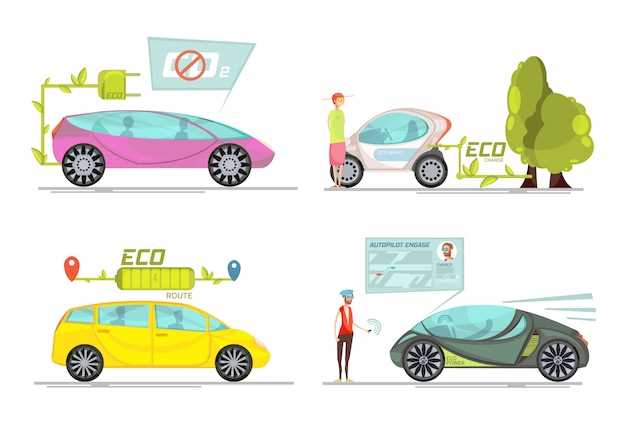
The growing demand for electric vehicles (EVs) has ushered in a new era of environmental responsibility within the automotive industry. As consumers become more conscious of their environmental impact, understanding certifications and standards associated with green vehicles has become essential. These certifications serve as a testament to a vehicle’s commitment to sustainability and environmental performance, providing buyers with confidence in their purchasing decisions.
Different organizations and governmental bodies have established various standards that aim to assess and certify the eco-friendliness of electric vehicles. These standards often evaluate a vehicle’s emissions, energy efficiency, and the sustainability of its manufacturing processes. By meeting these certifications, manufacturers not only demonstrate their dedication to reducing the carbon footprint of their vehicles but also align with global initiatives aimed at combating climate change.
In this article, we will delve into the various green certifications available for electric vehicles, exploring what they entail and their significance in guiding consumer choices. From international initiatives to local standards, understanding these certifications will empower consumers and enhance the overall market for sustainable transportation solutions.
Key EV Certification Programs and Their Requirements

Electric Vehicle (EV) certification programs play a crucial role in promoting sustainable transportation by ensuring vehicles meet specific environmental standards. Several recognized certification programs exist that evaluate the eco-friendliness and overall performance of EVs. Below are some of the key programs and their respective requirements.
1. EPA Certification: The Environmental Protection Agency (EPA) in the United States oversees the certification of EVs for compliance with emissions standards. Requirements include comprehensive testing of vehicle emissions, fuel economy ratings, and safety features. Manufacturers must submit extensive documentation and data regarding the vehicle’s design, components, and performance metrics.
2. CARB Certification: The California Air Resources Board (CARB) sets stringent requirements for EVs sold in California. CARB certification focuses on zero-emissions vehicles (ZEV) and mandates specific performance benchmarks, including battery efficiency, range, and a reduction in particulate matter. Additionally, manufacturers must demonstrate compliance through rigorous testing and monitoring.
3. ISO 14001 Certification: This international standard focuses on the environmental management systems of organizations, including EV manufacturers. To achieve ISO 14001 certification, companies must establish and maintain an effective environmental management system. Requirements include setting environmental objectives, conducting audits, and continually improving processes to minimize environmental impact.
4. Green Car Journal’s Green Vehicle Awards: This program recognizes manufacturers that meet specific environmental criteria. While not a strict certification, vehicles considered for these awards must demonstrate innovative technology, renewable energy usage, and reduced emissions. This recognition can enhance a vehicle’s marketability among environmentally conscious consumers.
5. ENERGY STAR Certification: Energy Star evaluates the energy efficiency of electric vehicles. To achieve certification, EV manufacturers must provide data on energy consumption and demonstrate compliance with established efficiency standards. Vehicles that meet these criteria are labeled as ENERGY STAR certified, making them more attractive to energy-conscious consumers.
Understanding these key EV certification programs allows consumers and manufacturers alike to recognize which vehicles align best with sustainability goals and environmental standards. Compliance with these certifications ensures that EVs contribute positively to reducing the carbon footprint and advancing toward a greener future.
Understanding the Impact of Green Certifications on EV Market Appeal
Green certifications play a crucial role in shaping the appeal of electric vehicles (EVs) in today’s market. As consumers become more environmentally conscious, the presence of recognized standards can significantly influence their purchasing decisions. Certifications such as LEED, Green Seal, and ENERGY STAR serve as indicators of a product’s sustainability, thereby enhancing its credibility.
One of the primary impacts of these certifications is the trust they build with consumers. When an EV is certified under stringent environmental standards, it assures buyers that the vehicle not only meets performance criteria but also adheres to ecological guidelines. This is particularly important as customers often seek reassurance that their investment aligns with their values regarding sustainability.
Moreover, green certifications can enhance the marketability of EVs. Automakers that achieve recognized certifications often experience an uptick in sales, as these labels can differentiate their products in a crowded marketplace. Consumers tend to prefer brands that prioritize environmental responsibility, making certifications a valuable marketing tool.
In addition, green certifications can grant access to incentives and rebates from federal or state programs. Many governments offer financial benefits to consumers purchasing certified EVs, thus increasing their affordability and attractiveness. This not only boosts sales but also accelerates the transition toward cleaner transportation.
Lastly, the growing emphasis on sustainability standards is pushing manufacturers to innovate. To obtain certifications, EV producers must invest in cleaner production processes and materials. This leads to advancements in technology and a broader commitment to reducing the carbon footprint of their vehicles, further enriching the EV market.
In conclusion, green certifications not only bolster consumer confidence but also enhance the market appeal of electric vehicles through differentiation, financial advantages, and innovation. As the demand for sustainable solutions continues to rise, these standards will be integral to the growth and success of the EV sector.
Navigating the Application Process for EV Green Certifications

Obtaining green certifications for electric vehicles (EVs) involves a structured application process that ensures adherence to environmental standards. This process can significantly enhance the marketability of EVs while promoting sustainability. Here’s a guideline to navigate through the steps.
1. Understanding Certification Standards
Before applying, familiarize yourself with the various certification standards applicable to your EV. These may include local, national, or international requirements that assess factors such as energy efficiency, emissions, and overall environmental impact. Popular certifications include Energy Star, LEED, and the Green Vehicle Guide.
2. Preparing Required Documentation
Gathering necessary documentation is a critical step in the application process. This often includes technical specifications, environmental impact assessments, production processes, and sustainability reports. Make sure all data is accurate and up to date to streamline the evaluation phase.
3. Conducting Product Testing
Many certifications necessitate thorough testing of the EV to verify compliance with environmental standards. Engage certified testing facilities to conduct these evaluations. Document the results, as they will be essential for your application.
4. Submitting the Application
Complete the application form and submit it along with the prepared documentation and test results. Ensure that you follow specific formats and submission methods outlined by the certifying authority. Missing or incorrectly submitted information can lead to delays or rejection.
5. Engaging with Certifying Bodies
Maintain open communication with the certifying body throughout the evaluation process. Respond promptly to requests for additional information or clarification. This collaboration can facilitate a smoother review of your application.
6. Preparing for Audits
Upon submission, your application may be subjected to an audit or review. Be prepared to demonstrate compliance in real-time, showcasing processes and practices that align with certification standards. Have relevant personnel available to address queries during the audit.
7. Addressing Feedback and Continuous Improvement
After the evaluation, you may receive feedback, which is critical for enhancing your practices. If your application is denied, carefully review the reasons and address any shortcomings before reapplying. Continuous improvement in environmental practices is vital for long-term success in acquiring certifications.
Successfully navigating the application process for EV green certifications not only validates your commitment to environmental sustainability but also positions your electric vehicle as a responsible choice in the marketplace.


